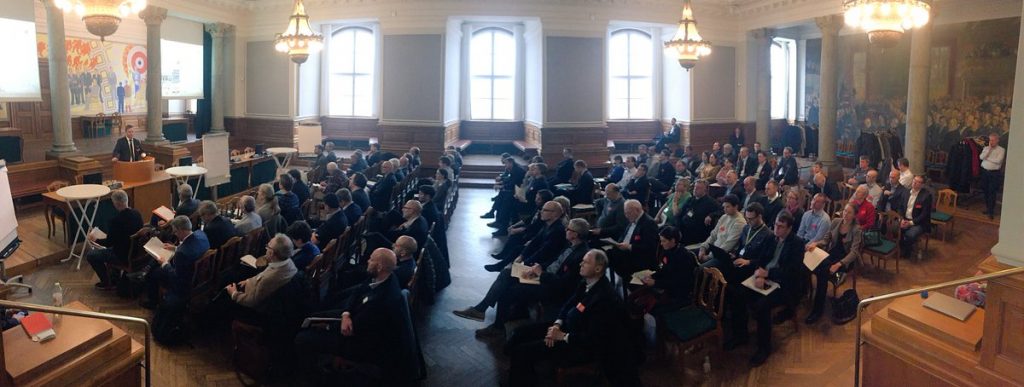E.ON sees geothermal heat as real alternative to biomass in Denmark
During a recent conference on geothermal energy in Copenhagen, energy utility E.ON and various other groups highlighted the great opportunity of geothermal heat for Denmark and its competitiveness to politically favoured biomass.
In a recent article published by energy utility E.On in Denmark, the company describes the significant geothermal potential of Denmark a few kilometers below ground. The Danish subsoil has the potential to become a cornerstone of the forthcoming energy agreement, but it requires that politicians as a minimum taxize the underground heat with biomass.
Denmark is on a huge heat resource and we are going to be much better at utilizing it. This was the message from the annual geothermal conference organized by GeoOP Geoop, held last week at Christiansborg, where politicians, researchers and utilities participated.
“We can get cheap and green district heating if we open the hot water from the underground. It only requires that we create greater investment security for investors. One obvious move is to reduce the geothermal heat charges to equate to biomass, “says Lars van Hauen, Innovation Director of Energy Company E.ON, and points out that recent research shows that geothermal energy is less costly than biomass.
According to a new study by the International Agency for Renewable Energy, IRENA, geothermal heat is one of the most cost-effective measures to reduce CO2 emissions. IRENA estimates that it is economically cheaper to increase the share of geothermal energy in the heating sector than to increase the proportion of biomass in the areas where geothermal resources are present.
Sustainable district heating from the underground
Although the geothermal resources in the Danish subsoil are significant, there are only three smaller Danish geothermal plants. One of the reasons why geothermal conditions are not widespread are the economic risks associated with the drilling and it is anxious, says Brian Wat Mathiesen, energy professor from Aalborg University.
“The geothermal potential is actually quite big. We know that geothermal energy can play a greater role in the future energy system. At the same time, geothermal heat supplements other renewable energy sources very well. Geothermal heat will typically be included in our district heating together with large heat pumps, and thus we use both our geothermal and the wind turbines, “explains Brian Vad Mathiesen. He estimates that underground heat in conjunction with heat pumps typically will cover 15-30 per cent. of the heat demand in a larger district heating system.
That assessment shares Katherine Richardson, member of the Climate Council and former chairman of the Climate Commission, who also attended the conference. “Fossil fuels have to be replaced by the bouquet of green technologies in which geothermal energy can easily be included,” she explains, and stresses that the utilization of heat from the Danish underground was part of the future picture of the Danish energy system presented in the Climate Commission 2010 report. At that time, the Commission considered that a large part of district heating in the future would be based on geothermal and heat pump installations.
The conference also included workshops and a panel discussion, which appeared in a number of recommendations, which are now being forwarded to Energy, Supply and Climate Ministers Lars Christian Lilleholt and the energy rapporteurs for the various parties.
- The power requirement should be removed
- Geothermal energy is poorly taxed in relation to biomass – geothermal and biomass should be equated.
- Geothermal energy should take priority over waste and fossil energy in district heating
- Pool to further cover potential in top 10 cities from the nationwide screening of 28 district heating areas
Source: E.On Denmark via Ritzau


















